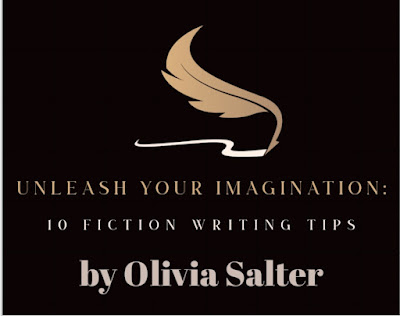|
|
|
👉 Don't forget to share this event with your writing friends. 👈
ProWritingAid’s Science Fiction Writers’ Week 2023: The Ultimate Guide for Speculative Fiction Writers
If you’re a speculative fiction writer looking to elevate your craft, network with industry pros, and get your hands on some cutting-edge writing tools, then clear your calendar for September 11–14, 2023. ProWritingAid is hosting its Science Fiction Writers’ Week, and it’s an event you can’t afford to miss — especially since it’s free!
Why You Should Attend
Learn from Bestselling Authors
Ever wondered how authors like Lauren Beukes and Jordan Ifueko write NYT bestsellers? This is your chance to find out. Both will be present for live interviews where you can ask your burning questions.
Craft Workshops
From world-building to scene construction, the event offers a plethora of workshops to power up your writing skills.
Networking
Looking for a critique partner or just want to mingle with like-minded writers? The networking events are designed just for that.
Special Offers
Attendees get 40% off ProWritingAid’s annual licenses until September 28th. If you’ve been considering this tool, now’s the time to invest.
The Full Schedule
September 11
- Blade Runner & Beyond by Lucy V. Hay: Learn how to blend science fiction and thriller elements to create compelling stories.
- Unleashing AI for Writing by Joe Nicoletti: Discover how AI can serve as your brainstorming companion and creative catalyst.
- Finding Your Ideal Reader by Sue Campbell: Learn how to create an ideal reader persona to boost your book marketing.
- Essentials of Writing Science Fiction by Anne Hawley and Rachelle Ramirez: Get a comprehensive guide on how to build and improve your science fiction story.
- Breaking Through Writer’s Block by Dani Abernathy: Learn unique methods to overcome writer’s block.
September 12
- Worldbuilding the Final Frontier by Janet Forbes and Dimitris Havlidis: Dive deep into the nitty-gritty of science fiction worldbuilding.
- An Interview with Lauren Beukes: Get insights from the award-winning author.
- New Worlds, New People by Eileen Cook: Learn how to use setting to show character arc and change.
- How to Write Engaging Scenes by Savannah Gilbo: Master the art of writing well-structured and engaging scenes.
- Networking Event: Speed Dating: Meet other people in the Science Fiction writing community.
September 13
- How to Edit a Science Fiction Novel by Shane Millar: Get tips and tricks for editing your novel.
- Science in Fiction for the Non-Scientist by Catherine Asaro: Learn how to include science in your fiction even if you’re not a scientist.
- World Anvil Software Demo: Get a walkthrough of the World Anvil software.
- Villainous Intent by Savannah Gilbo: Learn how to use interiority to reveal your character’s inner life.
- How to Tell The Story You Were Meant To Tell by Ramy Vance: Get a step-by-step plan for drafting and launching your novel.
September 14
- How to Use ProWritingAid to Edit Your Science Fiction Novel by Hayley Milliman: Learn how ProWritingAid can support your editing process.
- Across Time Zones and An Ocean — Science Fiction Author Panel: Join a discussion with Julie E. Czerneda, Dan Hanks, and Chris Panatier.
- Bring Your Story World to Life by Julie Artz: Learn an iterative approach to world-building.
- An Interview with Jordan Ifueko: Get insights from the NYT Bestselling Author.
- Networking Event: Build a Science Fiction World: Collaborate with other writers to create a Science Fiction world.
Speaker Bios
The event features an impressive lineup of speakers, including certified developmental editors like Anne Hawley and Rachelle Ramirez, award-winning authors like Lauren Beukes and Jordan Ifueko, and experts in AI and marketing like Joe Nicoletti and Sue Campbell.
How to Register
Ready to take your science fiction writing to the next level? Register for this free event here.
Don’t
miss this chance to learn from the best in the industry, all from the
comfort of your home. Whether you’re a seasoned author or just starting
out, this event has something invaluable for everyone. See you there!



![[Free Event] Science Fiction Writers' Week 2023 Returns [Free Event] Science Fiction Writers' Week 2023 Returns](https://blogger.googleusercontent.com/img/b/R29vZ2xl/AVvXsEiH5nrl60EzeUJWOl_DFsGESY1dpeaET0gcMfwZzwqfkH7WeyM5Hj2bKR6x-Rg4SNiYDwYko8Usl1z1t2LjT9iEUuETvK33BsGEvLJuCPHGYmeXWHxBiKWM7xZaOWzZ02hZLPtyXWyQVc3UymKRJ0lVSbhauq7KEaaj_nT8ZLfnqbOcUbcFAkhnxIkQ/w400-h400/0_FfUfDxVNf-kdCiw8.webp)






